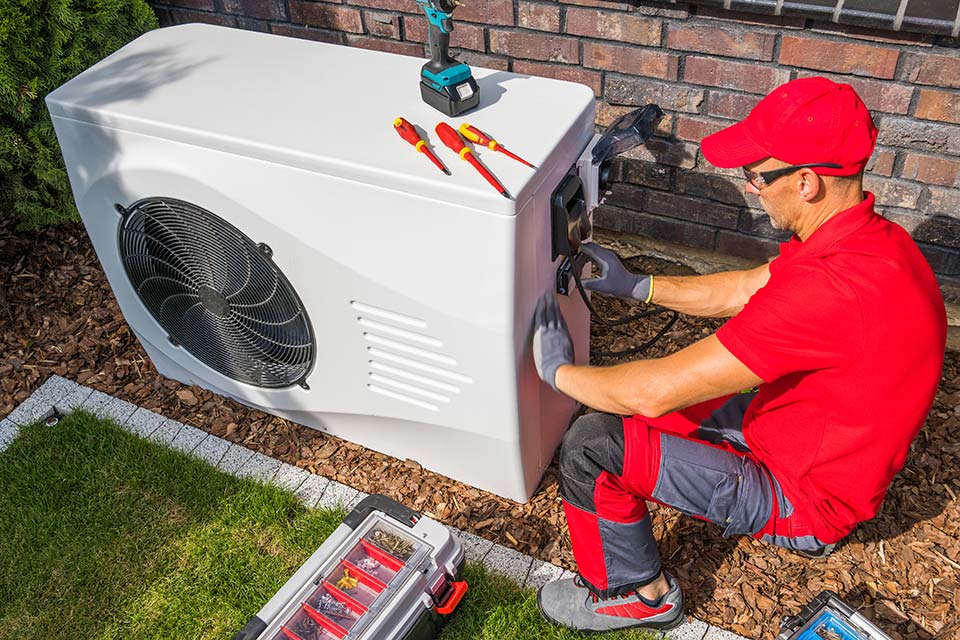The Rise of Heat Pumps in the UK
The UK is experiencing a quiet revolution in home heating. With increasing focus on net-zero targets, energy security, and long-term cost savings, heat pumps are becoming a popular alternative to gas boilers.
In 2023, the UK saw a record number of heat pump installations, marking a 19% increase compared to the previous year. This growth, driven by a mix of rising consumer awareness and stronger government incentives, means the total number of certified heat pumps in UK homes has now surpassed 200,000.
While this is encouraging progress, how does it stack up on a national scale?
How many homes have a heat pump in the UK?
According to the latest data:
- The UK has around 412 heat pumps per 100,000 people,
- Compared to an EU average of 3,068 per 100,000, the UK still lags behind most of Europe.
- In 2022, France sold over 620,000 heat pumps, compared to just 55,000 in the UK.
- By the end of 2023, over 220,000 renewable installations (heat pumps and solar combined) were registered in the UK, with the majority being solar.
Despite the growing trend, the UK is currently behind 21 European countries in terms of heat pump adoption. But that’s changing – fast.
What’s Driving Growth?
Several key factors are pushing the UK heat pump market forward:
Government Grants: The Boiler Upgrade Scheme increased its grant from £5,000 to £7,500 in late 2023. Applications jumped by 50% soon after.
Legislation: The UK is planning to make heat pumps a requirement for new homes in the coming decades.
Clean Heat Market Mechanism: Boiler manufacturers must sell a quota of heat pumps relative to their gas boiler sales.
Rising Gas Imports: With North Sea gas production declining, the UK is expected to import 60% more gas by 2035, making energy independence a top priority.
Still a Long Way to Go
While growth has been strong, experts agree it needs to accelerate dramatically. To meet the government’s target of 600,000 installations per year by 2028, the UK would need to increase its current rate more than tenfold.
As David Cowdrey of the MCS Foundation puts it:
“It is very encouraging to see the growth in all renewable energy, and particularly heat pumps. More households than ever are opting for these carbon-free and highly efficient heating systems that are zero emissions at point of use. But while we can expect a continued upward trend in heat pump installations, thanks to the introduction of higher grants, we will still need additional policies to achieve the exponential growth that is required now.”
Reducing electricity costs, reforming tariffs, and increasing consumer awareness are among the key policy suggestions.
A Growing Opportunity for Installers
At Future Network, we’re at the forefront of the UK’s clean energy transition – installing thousands of heat pumps each year across the country.
As demand continues to rise, so does the need for skilled heat pump engineers.
Join the Future Network Installer Team
We’re actively recruiting qualified and motivated heat pump engineers to join our national team. Whether you’re experienced or looking to upskill, we offer:
- A steady stream of work across the UK
- Industry-leading training and development
- Great earning potential and career progression
- Support from a reliable, forward-thinking company
Future-proof your career by working in one of the UK’s fastest-growing energy sectors.
Frequently Asked Questions
As of 2025, there are over 200,000 certified heat pump installations in the UK.
Not yet. While installation numbers are increasing, they must grow more than tenfold to meet the 600,000-per-year target by 2028.
The Boiler Upgrade Scheme offers up to £7,500 towards the cost of an air-source heat pump.
Heat pumps reduce reliance on gas, lower carbon emissions, and offer a long-term solution for energy efficiency and energy security.
You’ll need relevant plumbing or heating qualifications and may need MCS accreditation. Future Group Training offers training and a clear pathway to start or grow your career in this field.
Luke Angelo is the Director of Angelo Web Design, a digital agency dedicated to helping businesses grow through high-impact web design and online marketing. With years of experience working with companies in the renewable energy sector, Luke brings a unique understanding of sustainability-focused branding and communication. His passion for climate action drives him to support green businesses in making a bigger impact online.



